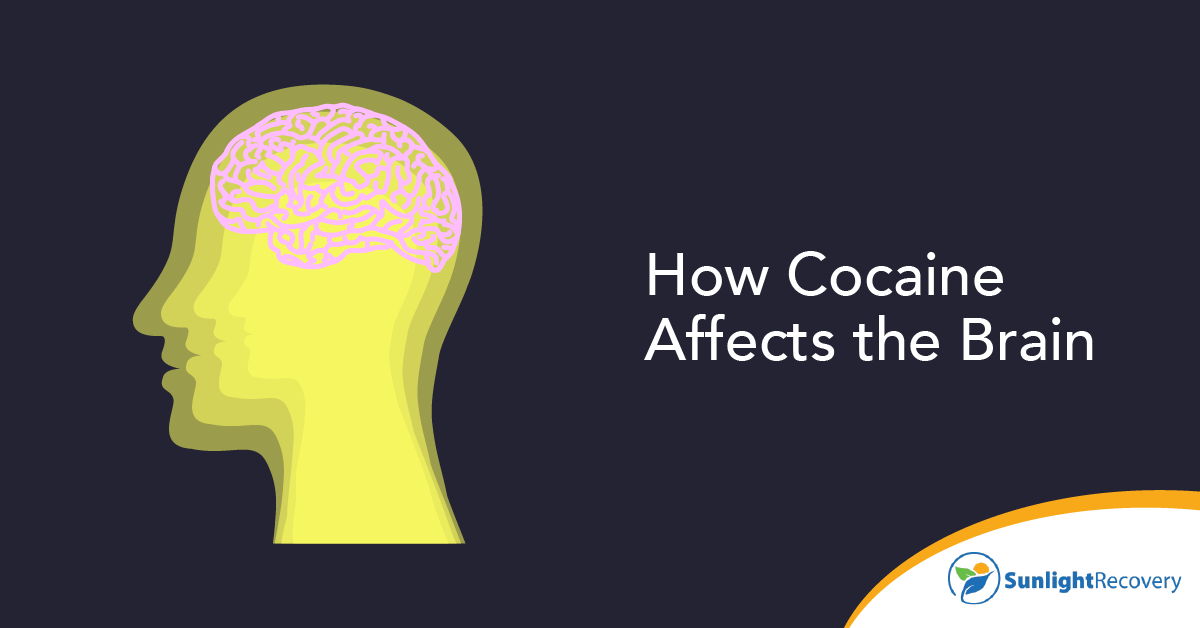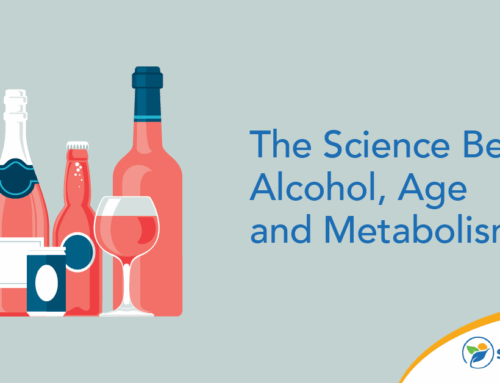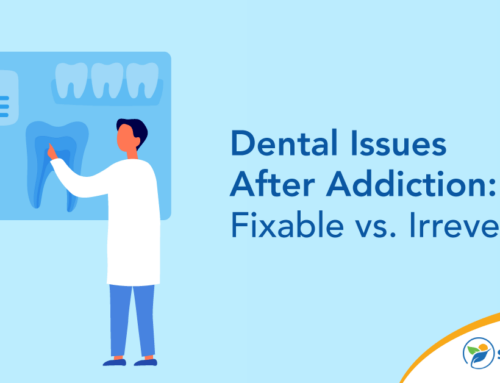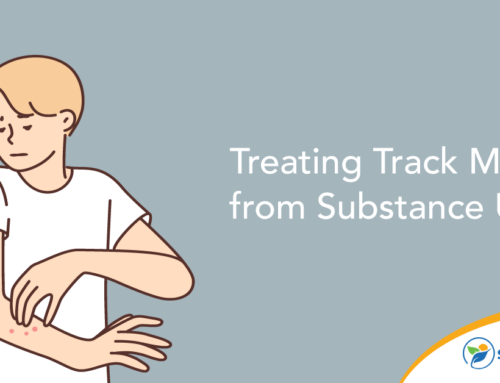Cocaine is one of the most powerful and addictive stimulants available today, and it’s capable of altering brain chemistry with immediate and lasting consequences. If you’re struggling with cocaine use, understanding how it affects the brain is essential for recognizing the dangers and taking steps toward recovery.
This comprehensive guide explores what cocaine does to your brain, from the moment it enters your system to the lasting repercussions of prolonged use.
The Immediate Effects of Cocaine on the Brain
When you use cocaine, it quickly enters your bloodstream and crosses into your brain, where it begins disrupting normal neurotransmitter function. Here’s what happens almost immediately.
- Dopamine surge. Cocaine blocks the reuptake of dopamine, the neurotransmitter responsible for feelings of pleasure and reward. Instead of being recycled as normal, dopamine accumulates in the synapses between neurons, creating an intense euphoria that’s substantially stronger than natural pleasure responses.
- Norepinephrine increase. Similarly, it prevents the reuptake of norepinephrine, leading to heightened alertness, energy and elevated vital signs. Heart rate increases, blood pressure rises and breathing may become rapid.
- Serotonin alteration. It also affects serotonin levels, influencing your mood regulation. The temporary surge contributes to the feelings of confidence and well-being many users describe.
Other immediate effects on your brain include:
- Constricted blood vessels, potentially reducing oxygen flow to brain tissue
- Increased body temperature
- Dilated pupils
- Decreased appetite
- Heightened sensory awareness
- Altered electrical activity resulting in an increased risk of seizures
What does cocaine do to you in the first moments? It creates a powerful but short-lived high. The effects typically begin within seconds or minutes and last from 15 minutes to an hour, depending on your method of use. As the drug wears off, your brain experiences a significant drop in neurotransmitters, leading to a crash characterized by fatigue, depression, irritability and intense cravings for more of the drug.
Long-Term Neurological Impact of How Cocaine Affects the Brain
With continued use, cocaine’s effects on brain function and structure become more profound and potentially permanent. Here’s what it does to the brain over the long term:
- Decreased dopamine function. Your brain adapts to excessive dopamine by producing less of it and reducing dopamine receptors. This lessens your ability to feel pleasure from normal activities such as eating, social interactions or sex.
- Reduced brain volume. Chronic use is associated with decreased gray matter volume in several brain regions, particularly the prefrontal cortex, which controls executive functions such as decision-making and impulse control.
- Deteriorated white matter. Cocaine also damages white matter, which is the tissue messages travel through between different areas of gray matter. This deterioration affects cognitive function and information processing speed.
- Altered stress systems. Long-term use disrupts your hypothalamic-pituitary-adrenal (HPA) axis, which regulates stress responses. This makes you more sensitive to stress and more likely to relapse under pressure.
- Compromised blood flow. Chronic narrowing of the blood vessels can lead to reduced blood flow to your brain, increasing your risk of stroke and other cerebrovascular events.
- Accelerated brain aging. According to studies, brain aging in cocaine users outpaces their chronological age, with premature thinning of the cerebral cortex.
- Impaired cognitive function. You may find you experience cognitive issues such as memory problems, attention deficit, impaired decision-making capabilities and reduced impulse control. Other issues may include lessened motor skills and difficulty with task switching and mental flexibility.
The severity of these long-term effects depends on various factors, including the amount and frequency of use, the duration of addiction, the administration method and individual biological factors.
Cocaine and Mental Health Disorders
How does it affect the brain in terms of mental health? The relationship between cocaine use and mental health disorders is complex.
- Risk of co-occurring disorders. Cocaine use significantly increases your risk of developing various mental health conditions, including major depressive disorder, anxiety disorders, panic disorder, paranoia, psychosis and cocaine-induced psychotic disorder. Users are also more likely to develop personality disorders, particularly antisocial and borderline personality disorders.
- Exacerbation of existing conditions. If you have preexisting mental health conditions, cocaine use typically worsens your symptoms and complicates treatment. You might initially use as a form of self-medication for untreated mental health disorders, creating a dangerous cycle that ultimately worsens both conditions.
- Neurotransmitter disruption. The same neurotransmitter systems affected by cocaine are implicated in many mental health disorders, which explains the high comorbidity rates.
- Psychiatric symptoms. Even without a preexisting mental health condition, cocaine use can induce symptoms similar to psychiatric disorders such as cocaine-induced psychosis, severe anxiety and mood swings mimicking bipolar disorder.
Treatment professionals must carefully distinguish between substance-induced symptoms and independent mental health disorders, as the approach to treatment differs significantly.
Can the Brain Recover?
What does cocaine do to you? Despite the severe effects of cocaine on the brain, evidence shows some recovery is possible with sustained abstinence. Your brain possesses remarkable adaptability, which lets neural pathways begin to heal and reorganize.
Also, research suggests the number of dopamine transporters and receptors can gradually increase after you stop using cocaine, although this process may take months or even years. Many cognitive functions also show improvement with extended abstinence, particularly attention, memory and decision-making abilities.
Timeline for Recovery
Your recovery may follow this general pattern:
- 7 to 10 days. Acute withdrawal symptoms begin to subside
- 90 days. Significant improvements in cognitive function and mood stability
- 6 to 12 months. Further recovery of dopamine systems and brain structure
- 1 to 2 years. Maximum recovery of most functions, although some subtle deficits may persist
Factors Affecting Recovery
Your recovery journey is influenced by several factors. Age plays a significant role, as younger brains typically demonstrate greater neuroplasticity and healing potential. The duration and intensity of your cocaine use directly impacts the extent of damage and the recovery timeframe, while using multiple substances often complicates the healing process. Preexisting or co-occurring mental health disorders require integrated treatment approaches.
Evidence-Based Approaches to Support Brain Recovery
Several treatment approaches work together to support your brain’s natural healing processes. Cognitive behavioral therapy helps rewire thought patterns and behaviors, while regular physical exercise stimulates the formation of new brain cells. A nutrient-rich diet, particularly foods containing antioxidants and omega-3 fatty acids, provides essential building blocks for neural repair. Establishing healthy sleep patterns gives your brain time for recovery processes to take place.
While some changes to brain structure and function may be permanent, especially after prolonged heavy use, your brain’s capacity for healing offers real hope for recovery.
Take the First Step Toward Healing
At Sunlight Recovery, we specialize in comprehensive addiction treatment to address the neurobiological aspects of cocaine addiction and the psychological components. Our expert team understands the complex ways cocaine affects your brain and has developed effective protocols to support your healing process.
Don’t wait until cocaine causes further damage to your brain and life. Contact Sunlight Recovery today to speak with a compassionate addiction specialist who can guide you toward the right treatment plan.







